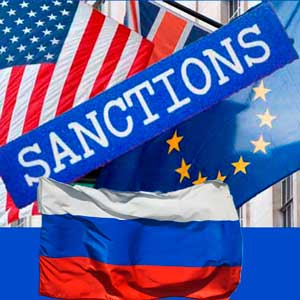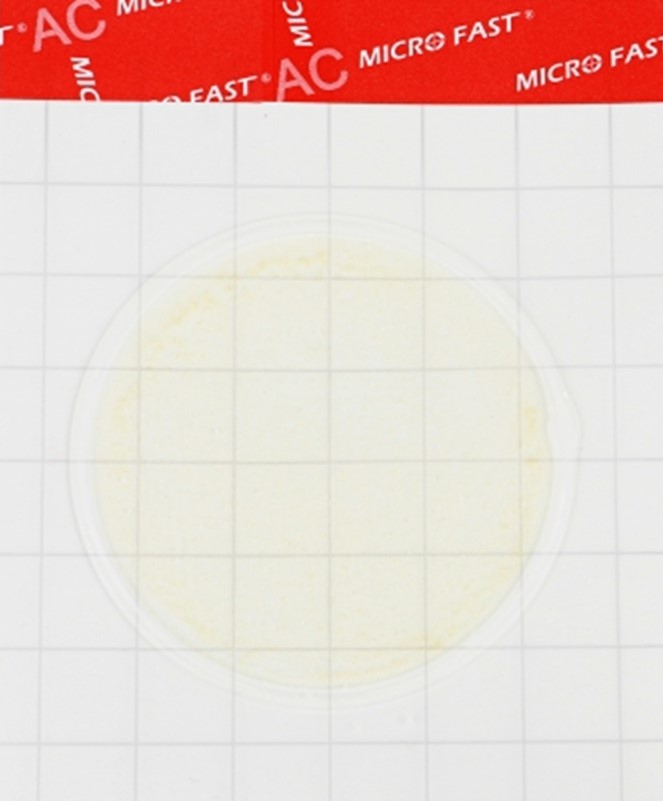VTB reveals record loss for 2022
The second largest bank in Russia, VTB, recorded losses under RAS in the amount of 756.8 billion rubles in 2022. against a profit of 242.6 billion rubles. a year earlier, Dmitry Pyanov, deputy chairman of the bank, said at a briefing. The State Bank also partially disclosed its financial results under IFRS: according to them, the group's total loss amounted to 612.6 billion rubles. Losses received over the past year were record-breaking in the history of the bank.
Losses in IFRS valuation turned out to be less, since they took into account a one-time income of 165 billion rubles. from joining Otkritie last December, Pyanov said. According to him, if not for this factor, the "organic loss" of the group would have amounted to about 777 billion rubles.
By comparison, during the 2020 pandemic, VTB remained profitable by both Russian and international standards. After the global financial crisis in 2009, the group recorded a loss of 59.6 billion rubles. according to IFRS.
“The difference between 2022 and 2009 in my eyes is that in the past we did not have the courage to admit all the losses during the crisis, in the crisis period itself. And then we “coughed” from the effects of the crisis carried over into the future,” Pyanov said. He emphasized that now the goal is “to leave really all the bad things in 2022 and have a sharper trajectory for profitability recovery” in the future.
Loss factors
VTB's net interest income under IFRS for the crisis year fell by almost half (minus 50.3%), to 321 billion rubles. Net fee and commission income decreased by 7.4% and amounted to RUB 146.8 billion. These income items barely covered only the group's net operating losses at the level of 466.7 billion rubles.
VTB identifies four factors that negatively affected the performance. Of these, according to Pyanov, there was a pre-tax loss of the group under IFRS of 960 billion rubles: about 300 billion rubles , or approximately 31.2% of this amount, these are losses from VTB’s open foreign exchange position and “non-monetary loss of strengthening ruble" in 2022.
Read PioneerProduct.by How to stop being nervous while looking for a job: 5 tips Boil chicken in a kettle: how LinkedIn is changing the approach to content Relations with the FATF are on pause, but there will be no easing of anti-money laundering rules Netflix against Disney:who will survive in the shrinking video streaming market“From the point of view of the object of sanctions, we were a convenient target with a large area of destruction. One of the planes of defeat was our currencyized balance sheet,” Pyanov emphasized.
VTB came under US blocking sanctions on February 24, the day the Russian military operation in Ukraine began . As Pyanov noted, the state bank was among the first to face restrictions, and at that time in Russia there were no Central Bank limits on withdrawing cash from bank deposits and accounts. At the same time, a rapid weakening of the ruble against the dollar and the euro was recorded. In addition, VTB was unable to conclude a currency swap with the Bank of Russia, as the latter also faced a freeze of gold and foreign exchange reserves a few days later due to sanctions. To fulfill the requirements of depositors, the bank bought foreign currency from exporters at an average rate of over 100 rubles. per dollar .
According to Pianov, from the end of February to the end of March, VTB lost 40% of client funds in US dollars, or almost $19 billion, and about 68% of liabilities in euros (€7 billion).
229 billion rubles , or 25% of the pre-tax loss, was caused by the disposal of VTB's subsidiaries . A significant portion of this amount arose from the deconsolidation of VTB Bank Europe SE in Frankfurt and the London division of VTB Capital. Both structures are now under external management. “In fact, this is an economic weaning without any compensation for our foreign assets,” VTB Deputy Chairman emphasized. About 344 billion rubles. , or 37% - extra reserves . Of these, 78 billion rubles. falls on loans to the population, since VTB was forced to take into account the risks, "including due to the effect of mobilization," Pyanov said. “This is only part of the reserves,” the top manager added. According to IFRS reporting, VTB allocated RUB 514.3 billion to cover possible losses in 2022, which is 4.4 times more than the costs of 2021. According to Pyanov, the amount of assets frozen due to sanctions amounted to 685 billion rubles. according to RAS and about the same according to IFRS. The group estimates the amount of blocked liabilities at 150-180 billion rubles. 33 billion rubles , or 3.4%, is the loss from the realized interest rate risk in 2022 as a result of a sharp rise in the key rate.What gave VTB accession "Discovery"
“In fact, we acquired [Otkritie] for 340 billion rubles, public information was disclosed in two press releases. And the net assets of the Otkritie group at fair value amount to almost 505 billion rubles, that is, the delta gives 165 billion rubles. one-time, non-recurring income, the nature of which lies in the fact that, according to the market value, we bought something that costs more in terms of assets,” Pyanov said.
According to IFRS reporting, at the end of 2022, VTB's total assets amounted to 24.42 trillion rubles, an increase of 17.1%, or 3.57 trillion rubles. About 4 trillion rubles. assets were given by the accession of Otkritie, VTB specified. Without taking this factor into account, the group's total loan portfolio would have grown by 4% against the fixed 18.1%. During the same period, attracted customer funds increased by 22%, to 18.5 trillion rubles, excluding Otkritie, this growth would have amounted to 6%.
According to Pyanov, the strategy for integrating the assets of Otkritie into the VTB Group will appear in the middle of this year.
Plans and dividends
“The stress is over, the tears are shed. The profit recovery trajectory suggests that 2023 for VTB Group <…> has every chance of repeating 2021 in terms of record profits,” Pyanov emphasized. A year before the crisis, VTB's financial result under IFRS amounted to 327.4 billion rubles. He clarified that the group's goal for 2023 is to break this record.
In January-February, VTB has already earned 91.7 billion rubles, follows from the published interim financial statements under IFRS. According to the bank's estimates, for the first quarter profit will amount to 140 billion rubles. 31 billion rubles of this amount - a one-time income from the consolidation of the Crimean RNCB.
Nevertheless, the restoration of profitability does not mean a return to dividend payments, Pyanov stated, the profit will be directed to the restoration of capital. The top manager emphasized that the loss recorded only in 2022, without possible additional losses, “is essentially two annual profits to restore the status quo.”
In addition, credit institutions that will use the Central Bank's capital breaks in 2023 and subsequent years are limited in paying dividends.
Capital situation
At the end of 2022, the total capital of the VTB Group under IFRS amounted to 1.531 trillion rubles, over the year it sank by almost a third (minus 31%), Pyanov said. At the same time, capital ratios turned out to be on the border of requirements, taking into account allowances: 11.6% for the equity capital adequacy ratio at the group level (N20) and 8% for basic capital (N20.1).
In its reporting under RAS, VTB applied relief from the Central Bank, which allowed it to form a larger capital reserve. VTB Bank's equity capital adequacy ratio on a solo basis at the end of 2022 was 10.93%, with a minimum of 8%. The core capital adequacy ratio was at 6.99%, which is also above the threshold of 4.5%.
Both standards take into account the “high price” of regulatory easing, Pyanov admitted: this is 6.4%. In February 2022, the Central Bank allowed credit institutions to fix pre-crisis exchange rates and the value of securities for portfolio evaluation, and also not to worsen risk categories for loans to clients affected by sanctions.
In order to improve its capital position, VTB has temporarily stopped paying coupons on subordinated bonds since December, and expects to carry out two additional share issues in 2023.
The first one, for 149 billion rubles, has already taken place: VTB converted a subordinated deposit for 100 billion rubles, which it received from the government back in 2014 at the expense of the National Welfare Fund, and also included RNKB shares in its capital. The share of the state in the capital of the group increased from 65.9% to 76.4%.
The volume of the second additional issue has not yet been determined, since the placement of shares will be open. VTB expects to issue an additional 93 trillion ordinary shares, at a market value of approximately 2 kopecks. per share (price as of April 4, according to the Moscow Exchange), the maximum volume of borrowing may reach 186 billion rubles. Kostin previously noted that VTB collected preliminary applications for 120 billion rubles.
Unlike the first, this will be a cash and non-state additional issue, Pyanov emphasized: according to him, it will be more important for supporting the group's capital, while the state's share as a shareholder will not fall below 50% plus one share . The top manager of VTB refused to disclose who could become an anchor investor. Earlier, Frank Media, citing sources, reported that an additional issue of 120 billion rubles. will buy out several non-state pension funds of the Gazprombank group.
In a press release from VTB, it is reported that the total volume of additional capitalization this year is estimated at 270 billion rubles. According to management's calculations, both issues will allow the bank to keep the core capital adequacy (H1.1) at 6% at the end of 2023, when most of the benefits from the Central Bank cease to operate. The pause in the payment of coupons will have a positive effect on the capital by another 36 billion rubles, Pyanov specified. According to him, these steps will give VTB "a comfortable headroom for any projected market volatility."





























































